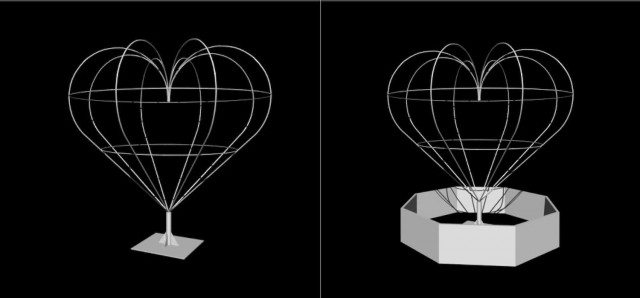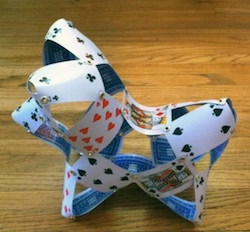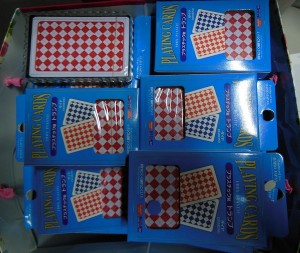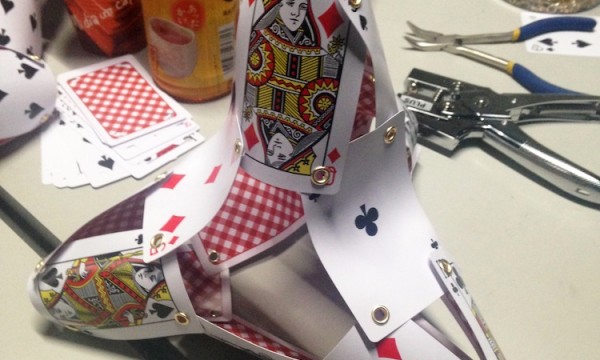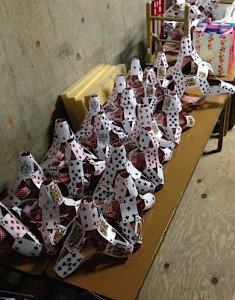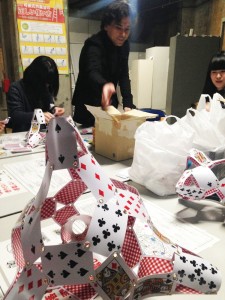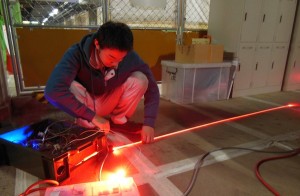©SORA Synesthetic Design Studio+Takuya Yokoyama
縁結びで知られ、1300 年の伝統をもつ東京「神田明神(神田神社)」に、現代アーティストが制作した『Heart』を展示するプロジェクトです。
■プロジェクトの背景
2015 年 2 月 2 日〜3 月 14 日、東京、御茶ノ水の公共スペース、お茶の水サンクレールにおいて、アート&ソサイエティ研究センター企画のアート作品『ハート・ライト・ゴーランド』が展示されました。バレンタインデーとホワイトデーを意識して「LOVE」、「ハート」をテーマに、造形アーティスト志喜屋徹のアイディアのもと、新井敦夫の五感演出プロデュースにより行われたプロジェクトです。
トランプで立体的につくられた数体の動物オブジェを包み込むように、約2.3m の大きさのライン状の LED 照明で「ハート型フレーム」が出来ています。 『ハート ・ライト・ ゴーランド』は、アーティストの造形だけで完成という訳ではありません。そのフレームは、メッセージなどが結びつけられるようになっていて、一般の参加者が、大切な人に向けた「愛」や「想い」をハートマークのトランプに書き、結びつけていくことで完成する、参加型のアート作品でした。
現代アートでありながら、おみくじや絵馬を結びつけるという日本的な風習にのっとったスタイルは、一般の方も参加しやすく、みるみるうちに大量のカードが結びつけられて、期間終了時には、1500 枚を超える、「愛」や「想い」が込められた、メッセージカードが集まり、このプロジェクトは大盛況のうちに終了しました。「ずっと、やっていて欲しかった。」と、残念がる人の声も上がるほどでした。
しかし、一時的なプロジェクトであったため、期間終了した現在、作品はそのスペースから撤去され、廃棄処分されることになります。
「ハート型フレーム」の処分を名残惜しんで、なんとか人びとに愛された作品を地元の縁につなげていけないものか、五感プロデューサーの新井は、プロジェクトの開始時にお参りしていた「神田明神」に、終了後、祈願達成の報告のため再度お参りしたときです。「ここ、神田明神に奉納したら、どうだろう?」 と、ふと思い立ちました。まさに、インスピレーションを受けた瞬間です。
一方、アート&ソサイエティの工藤は、一般の方々から集まった、大切な人へ の様々な「愛」や「想い」が綴られた「メッセージカード」を読んでいるうち に心を動かされ、この気持ちを、なんとかしてあげたいと考えはじめました。 そして、人びとが自分たちの思いを託すものとしてアートをとらえる姿をみて、 社会との関係性を築けたことを強く実感していました。
そんな気持ちをもったまま、2人は相談し、意気投合。「神田明神への奉納」の アイディアを造形アーティストの志喜屋に相談すると、「今回の作品を考えるとき、『メッセージカード』は『絵馬』から、『ハート型フレーム』は『おみくじや、絵馬を結びつける場所』から、まさに、神社からのインスピレーションを受けてたんです!」と志喜屋もまた意気投合しました。「その『神社への奉納』 が、実現出来れば、みんなの『愛』や『想い』を集める、神社の新しいシンボルになる!」「個人的、一時的な現代アートの表現を越えて、日本伝統の文脈にのっとった、普遍的、恒久的な文化の発展にも繋がるような気がする!」と期待も大きく膨らんでいきました。
その後、早速、お茶の水駅前商店街の会長や商工会議所の方々にご協力いただき、神田明神の権禰宜である長沢隆光さんに、サンクレールまで『ハート・ライト・ゴーランド』の展示を見に来て頂く運びになりました。長沢権禰宜さんは、すぐに大変気にいり、神田明神の大鳥居信史宮司にお話して頂いたところ、 即答で『ハート・ライト・ゴーランド』を貰い受けよう、という事になりました!移設に伴う運搬や LED ライトの設置費用、恒久的な作品にするための耐久処理や防水処理などのための費用として神田明神から準備金を頂き、その他にも地元企業さんの三井住友海上火災、東京商工会議所千代田支局からも寄付金を頂いています。
御茶の水駅に 1981 年建設された「新御茶の水ビルディング」の公開空地、サンクガーデンに展示した参加型アート作品を、地元の鎮守様であり、1,300 年の歴史を持つ神田明神に奉納することは、“作って、壊し、捨てる”、というこれまでの街づくりのあり方と相反するものです。“地元でつくられ、それを地元につなげる”、これがこのプロジェクトが生み出した価値だと考えます。今後の展望として、この作品が、「恋愛成就祈願」の新しいシンボルとして、“LOVE 結びアート”となり、末永く、親しんでもらえるものになってほしいと思っています。そして、日本国内だけではなく、「COOL JAPAN」を代表する現代アートと、伝統文化をつなぐ表現のひとつとして、海外にも発信できるような新名所となるよう願っています。
プロジェクト・メンバー一同
志喜屋徹、新井敦夫、高木潤、松本大輔
アート&ソサイエティ研究センター 工藤安代
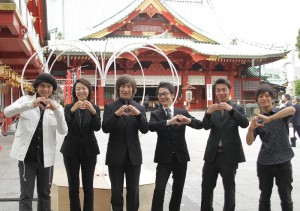
≪本体寸法≫約 2300W×約 2300H×2300D
≪仕様≫フレーム/スチール防錆塗装仕上げ
照明/フルカラーLED ライト
(防水仕様)+樹脂製特殊導光棒、
調光コントローラー付属
<1,500 枚の「LOVE メッセージ」がハートマークのトランプに書き込まれ、作品に結ばれた>
These are the ties of love at the 1300-year old Kanda Myōjin, which modern artists have represented as a Heart.
The Background of the Project
From Feb. 2 –March 14, at the public space at Saint Clair in Ochanomizu, the artwork Heart Light Go-Round, planned by the Art & Society Research Center, was displayed. It was based on an idea of artists, Shikiya Akira and Arai Atsuo of Five Senses Productions concerning love and the heart on Valentine’s Day and White Day(the day following Valentine’s Day when girls give boys white chocolate) .
A 2.3 meter frame composed of LED lights and wrapped in a number of animal-like objects made of playing cards was called the “heart frame.” As a temporary work of art, the artist did not think of it as a finished work. People participating in the event tied messages on it concerning their love or thoughts for important people in their lives. These were written on playing cards of the heart suit. Only then was it a finished work.
While it was a piece of contemporary art, it relied on the Japanese traditions of fortunes and ema (the pictures of horses offered to shrines in prayer or thanks), making it easy for Japanese bystanders to participate. As they looked at it, they wrote their own hopes and concerns on the playing cards that they tied on the frame. When it was finished, we had over 1500 cards on it expressing people’s love and thoughts about others. The project was a great success and many people felt sad that it could not continue.
However, the work was only temporary, and when the project ended it would have to be removed from the site and disposed of. We felt great reluctance to dispose of the “Heart-Frame,” and wondered if we could somehow preserve its relation with the people of the local area who loved it. Arai, the producer of Five Senses had gone to Kanda Myōjin when the project began, and when the project concluded, he went again to report on how prayers had been offered. He suddenly thought, “Could we offer it to Kanda Myōjin?”
Kudō of Arts and Society had been deeply moved by reading the messages about love and thoughts about others that had been written on the playing cards and wanted to do something with them. She felt strongly about the way in which people had entrusted their thoughts as art and related to society.
The two discussed their feelings and found that they were in agreement, and then went to discuss giving the work to Kanda Myōjin with the plastic artist Shikiya. He responded, saying, “When I thought of the project, the message cards seemed like ema and the heart-shaped frame was also like ema or the fortunes one obtained at shrines. So from the beginning I found inspiration at shrines. If we succeed in offering it to the shrine, it will become a new symbol at the shrine for collecting people’s love and dreams.”
“This goes beyond an individual or temporary expression of contemporary art because it draws upon the context of Japanese traditions. I feel that it connects with universal and eternal expressions of culture.” We then went to speak with the president of the organization for the shops in front of Ochanomizu Station and to the conference of commercial and industrial organizations and obtained their cooperation. The provisional suppliant priest Nagasawa Takamitsu liked it immediately.
We collected funds to transport it to its new location and install the LED lights. To make it a permanent installation it must be protected from water damage. We have received inititial funds from Kanda Myōjin, the local branch of Mitsui-Sumitomo Insurance Company, and the Chiyoda Branch of the Tokyo Chamber of Commerce and Industry.
In 1981 , the Shin Ocha no Mizu Building with a sunken garden was established as a public space with art as a guardian deity for the area. By offering this to Kanda Myōjin with a 1300 year history, we are rejecting the usual course of making something and then destroying or throwing it away. We see the value of this project in it being a “locally made object with ties to the local area.” This will be a symbol of prayers for love for the future. We think it will represent a modern view of “Cool Japan” that is connected to traditional culture. We hope that it will become famous place that sends a message of love to foreign countries.
Project Members
Akira Shikiya, Atsuo Arai, Jun Takagi, Daishuke, Matsumoto
Yasuyo Kudo Art & Society Research Center
Measurements 2300 cm wide x 2300 cm high x 2300 cm. deep
The frame was steel, coated with anti-rust paint
LED full-color lights with a resin-coated special pole, a light-sensor.
1500 playing cards with the heart suit with messages completed the work
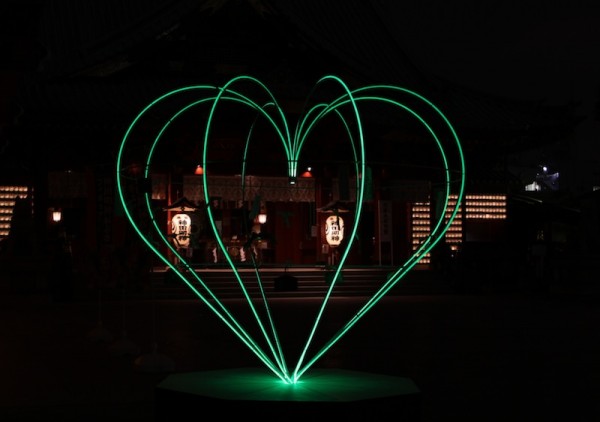












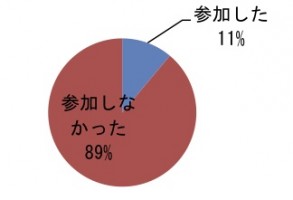
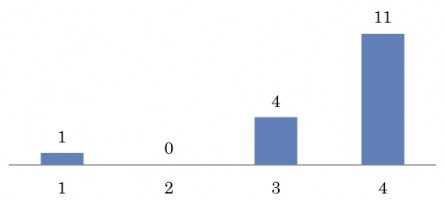
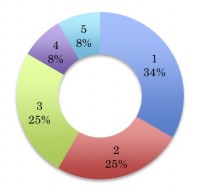
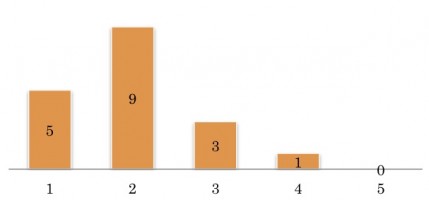
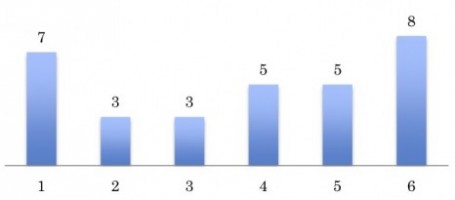
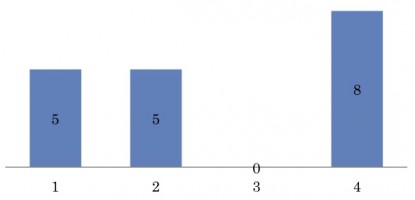
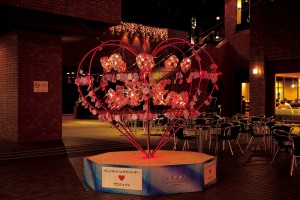
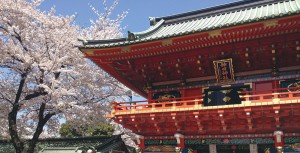
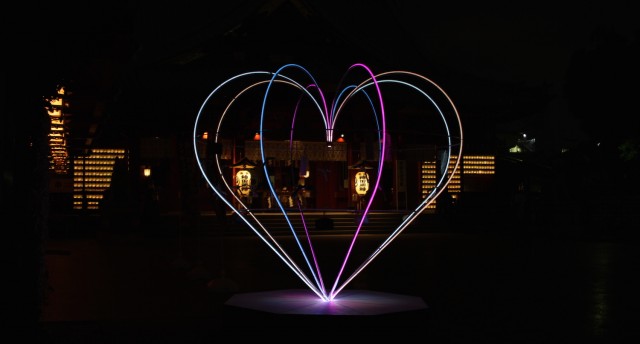
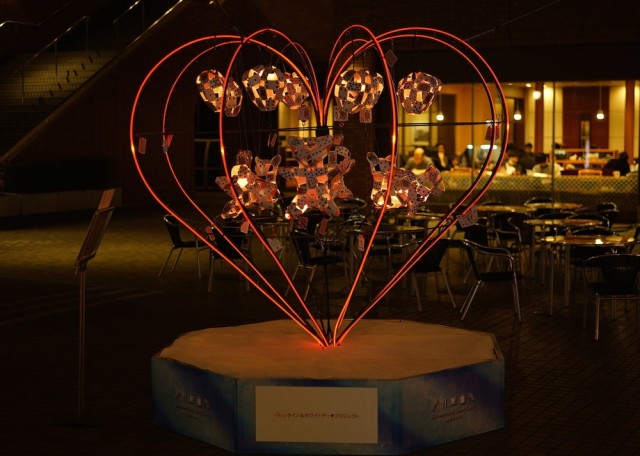

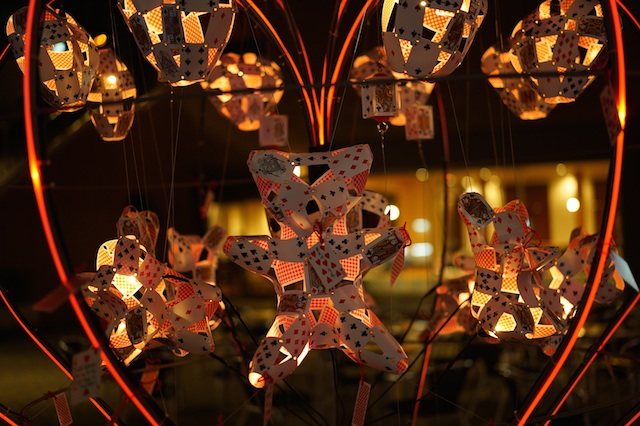
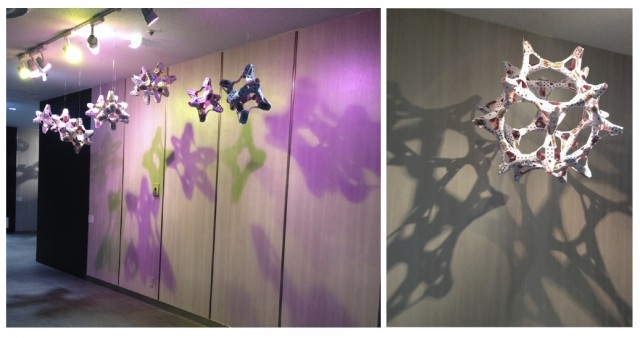
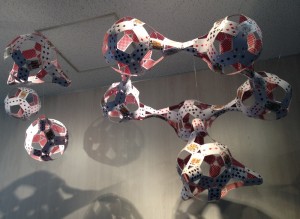
 志喜屋 徹 AKIRA SHIKIYA
志喜屋 徹 AKIRA SHIKIYA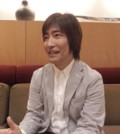 新井 敦夫 ATSUO ARAI
新井 敦夫 ATSUO ARAI 高木 潤 JUN TAKAGI
高木 潤 JUN TAKAGI